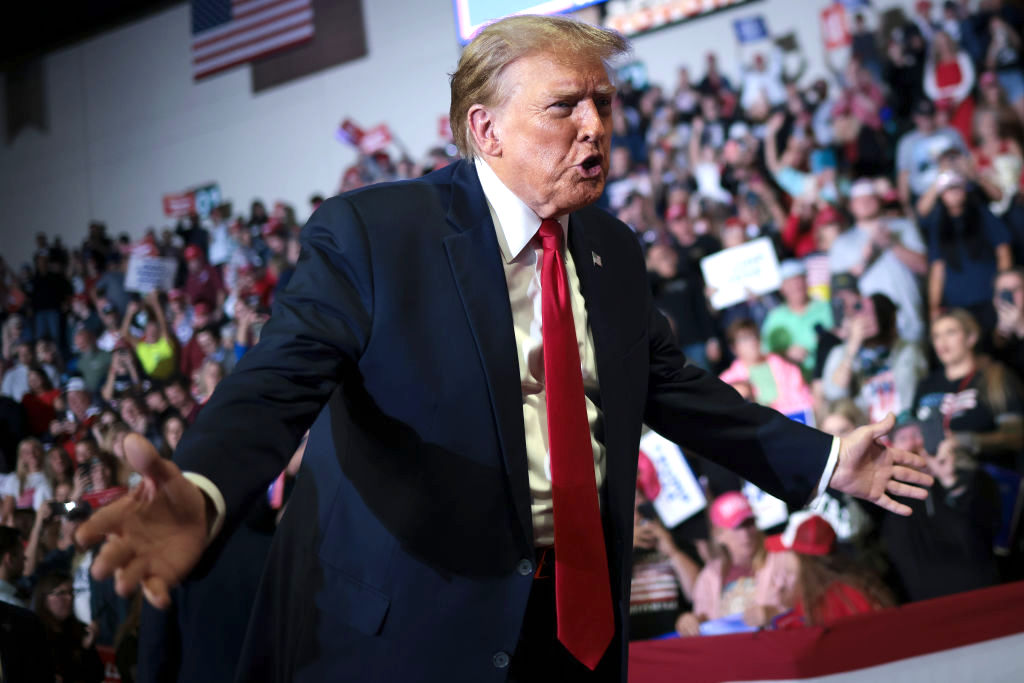Presidents Lincoln and Roosevelt are remembered for their powerful constitutional visions, urging unity and progress. Lincoln famously invoked “the better angels of our nature,” while Roosevelt rallied behind “the only thing to fear is fear itself” and the “New Deal.”
However, Donald Trump’s presidency diverged significantly. He asserted unprecedented authority, claiming immunity from legal processes and even incited violence, as seen in the events of Jan. 6. In his bid for re-election, Trump continues with a pattern of intimidation and vengeance against opponents.
His legal battles, including claims of immunity, have been consistently dismissed by the courts, highlighting the dangerous precedent of placing former presidents above the law.

Threat to Democratic Safeguards: Trump’s Constitutional Bullying (Credits: The Atlantic)
Trump’s influence extends beyond legal battles, as seen in attempts to impeach President Biden and the controversial focus on personal investigations, such as those involving Biden’s son.
Moreover, Trump’s challenge to Section 3 of the 14th Amendment, combined with his history of inciting violence, poses a serious threat to the rule of law.
Despite these challenges, the fundamental principle that no one is above the law, as enshrined in the Constitution, remains crucial. The upcoming election will serve as a test of whether this principle can withstand the pressures of political vendettas and threats of violence.























